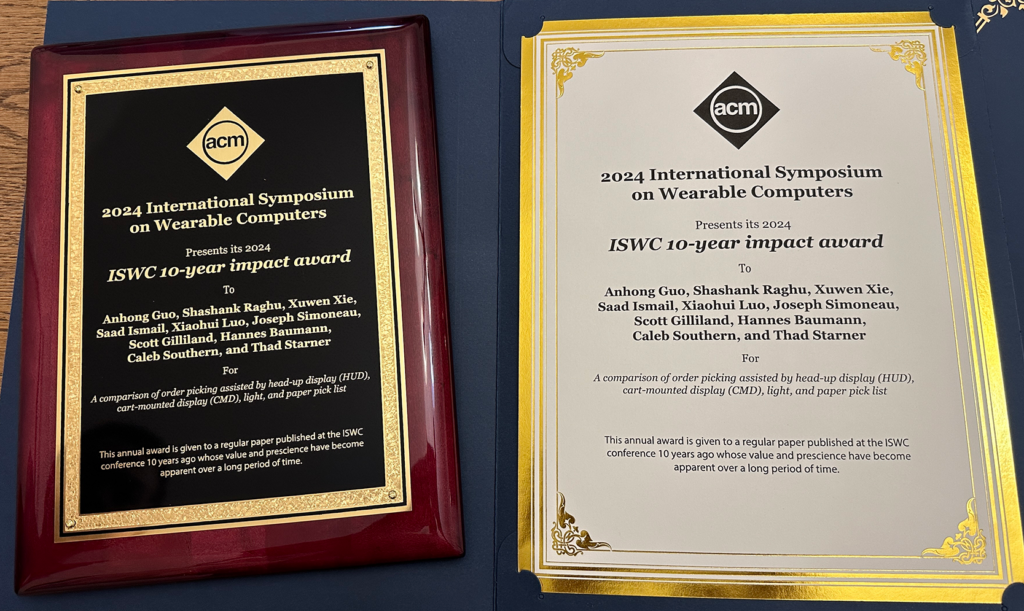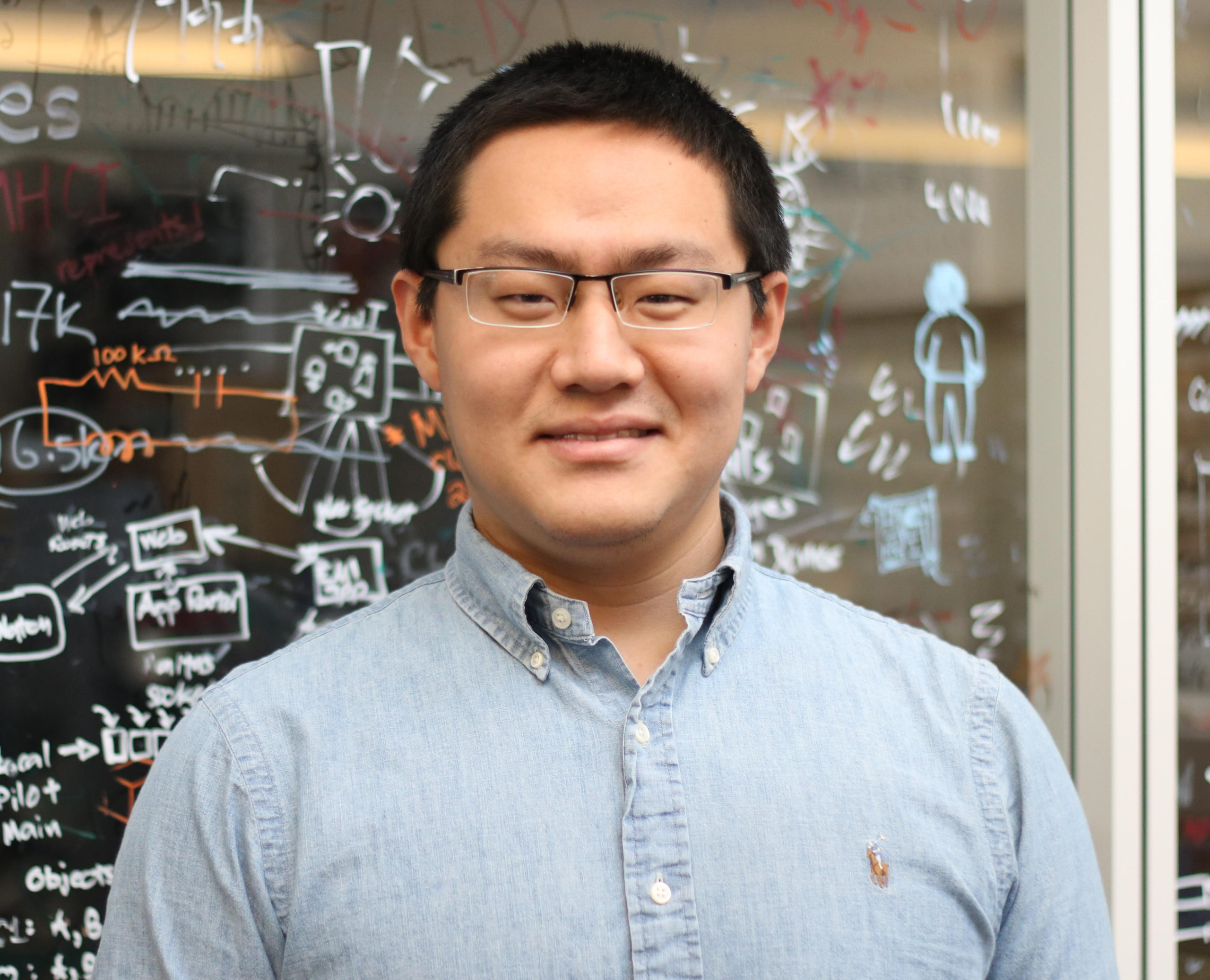Anhong Guo receives ISWC 10-Year Impact Award

Anhong Guo, assistant professor of computer science and engineering at the University of Michigan, and his coauthors have been selected as the 2024 recipients of the 10-Year Impact Award at the International Symposium on Wearable Computers (ISWC) for their paper titled “A comparison of order picking assisted by head-up display (HUD), cart-mounted display (CMD), light, and paper pick list.” Guo’s paper has had a substantial and sustained impact on the field of wearable technology, particularly in industrial contexts.

Co-located with the ACM Joint International Conference on Pervasive and Ubiquitous Computing (UbiComp), the ISWC conference is the top venue for new research and developments in the area of wearable computing. From October 5 to 9, researchers and practitioners from around the world convened in Melbourne, Australia this year to share and discuss the latest advances in the field. The 10-Year Impact Award is given to one paper annually, recognizing research that has significantly influenced the field of wearable computing over the past decade.
The awarded paper, Guo’s first research publication, was initiated in a course taught by Professors Thad Starner and Gregory Abowd at the Georgia Institute of Technology. The research featured a simulated warehouse setup to evaluate the effectiveness of four different order picking methods: head-up display (HUD), cart-mounted display (CMD), pick-by-light, and the traditional paper pick list. The study assessed these methods based on time efficiency, accuracy, and cognitive load, finding that the head-up display demonstrated significant advantages over traditional methods.
Guo’s work helped demonstrate the practical value of wearable technology in industrial settings. The study’s findings have influenced the adoption of head-up displays in real-world applications, such as the use of Google Glass Enterprise by several companies for tasks related to order picking. This research not only highlighted efficiency improvements but also underscored the potential of wearable technologies in reducing cognitive load and improving overall operational performance.
Guo’s innovative contributions continue to shape the future of wearable computing and its integration into complex task environments. His work has set a foundation for further research in adaptive systems and user interfaces in pervasive computing settings.
This early research also helped shape Guo’s current work, which focuses on designing, developing, and deploying human-AI intelligent interactive systems to enhance accessibility in both the real and digital worlds, particularly for people with disabilities. Guo’s earlier research on wearable technologies and efficiency improvements in industrial settings was a crucial foundation for his current efforts to create more effective and accessible user interfaces.
 MENU
MENU 
